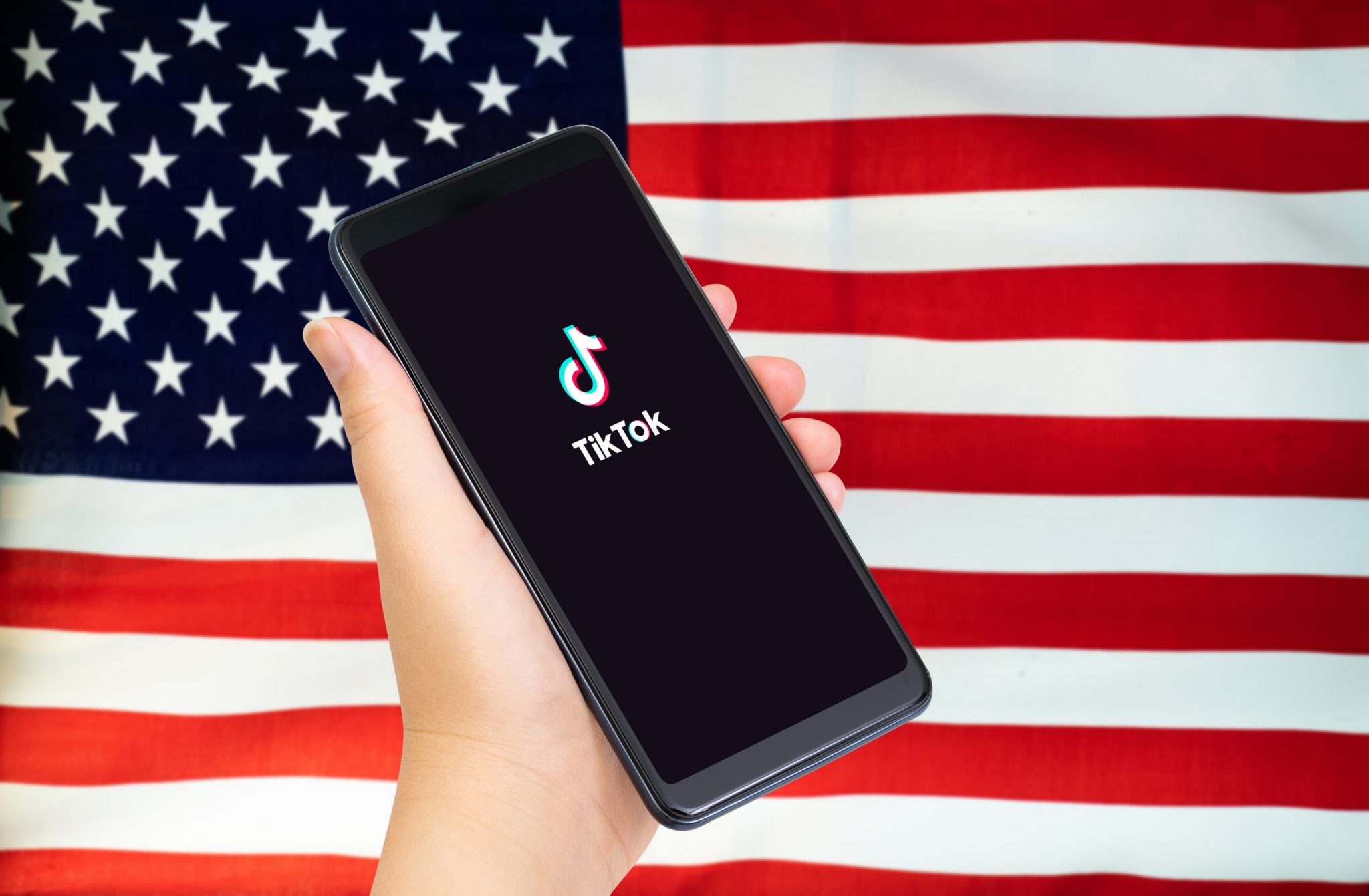Amidst an already mixed and muddled information morass, this election cycle, a new social media platform has joined the US political information environment: Chinese-owned viral video app TikTok. Despite years of warnings from researchers and lawmakers, the national security concerns around data security and political and algorithmic influence related to TikTok’s Chinese parent company remain unresolved. But a growing number of US political candidates have started using the platform regardless. That could open the United States to an unprecedented degree of political, information, and electoral influence from China.
The People’s Republic of China (PRC) has already shown increasing willingness and intent to conduct malign activity and interference in democracies, including the United States. Indictments of Chinese intelligence officers unsealed in October by the Department of Justice paint a picture of how China continues to threaten democratic norms and flagrantly disrespect the rule of law in the United States. And social media platforms—many of which are banned in China—are a well-trodden playing field for Chinese information operations. In September 2022, Meta took down a rudimentary Chinese network (not directly attributed to the government) of fake accounts posing as both Republicans and Democrats in Florida, Texas, and California and targeting US midterms voters across Facebook, Instagram, and Twitter. And ahead of the midterms, the FBI has warned that Chinese government-affiliated actors are promoting disinformation about US election integrity, raising concerns about possible influence attempts. If TikTok becomes a de facto platform for US political discourse, its ownership by Chinese parent company Bytedance could make it a fertile playground for more direct Chinese electoral interference.
TikTok has a history of censoring content unfavorable to the Chinese Communist Party, and its especially opaque algorithm makes selective promotion or suppression of content particularly hard to track. Moreover, TikTok already exacerbated election disinformation around candidates and elections outside the United States this summer, including in Kenya, the Philippines, and Colombia. As more US political candidates join TikTok and normalize it as a platform for political content, the United States will likewise be opened up to disinformation, censorship, suppression, and selective control of individualized content by a Chinese-owned company.
To get ahead of the issue, we looked at how US midterms candidates are using TikTok this election cycle.
The Facts: Who’s Now Using TikTok in the Midterms? How Widespread Is It?
In the 2022 midterm elections, a not-insignificant group of candidates is using TikTok to reach voters. The Alliance for Securing Democracy at GMF tracked and catalogued 227 TikTok accounts created and used by US major party candidates in Senate, House, governor, and secretary of state races this November. (Note: Approximately 48 of the catalogued accounts are either private, have posted no content, have no followers, or are unable to be verifiably attributed to the candidate.) Of all the accounts we studied, TikTok has only verified 40, most of whom are political incumbents or previously held office. (View the list of accounts here.)
Here’s what we found:
- A new platform for US politics: With rare exceptions, candidate TikTok accounts were created following the 2020 elections, and many only recently started to publish political content. Whereas Facebook, Twitter, and YouTube have been used for political and election-related content for years, TikTok is a relatively new entrant to US political and election discourse, with few road-tested election policies.
- Democrats more than Republicans: Only 12 percent of Republican candidates in Senate, House, governor, and secretary of state races have TikTok accounts, compared to 34 percent of Democratic candidates in these races. The Democratic National Committee, which has its own TikTok account, has promoted the platform’s use among Democratic candidates.
- Federal races: Almost 30 percent of major party candidates in Senate races have a TikTok account (47 percent of Democrats and 12 percent of Republicans). There are three incumbent senators with verified accounts: two Democrats (Patty Murray and Catherine Cortez Masto) and one Republican (Mike Lee). Only four Republican Senate candidates are on TikTok: Tiffany Smiley (WA), Mike Lee (UT), Bob McDermott (HI), and Mehmet Oz (PA). One-fifth of all major party House candidates have an account on the platform (30 percent of Democrats and 10 percent of Republicans).



- State races: Gubernatorial races had the highest proportion of TikTok usage, with 47 percent of major party candidates (57 percent of Democrats and 24 percent of Republicans) using the platform. Candidates for governor are some of the most followed candidate accounts on TikTok and, along with Senate candidates, are more likely to be officially verified by the platform (40 percent of both gubernatorial and Senate candidates are verified on TikTok). Only 26 percent of candidates for secretary of state have an account, but, with a few exceptions, they receive very little engagement on TikTok.



Eight out of the ten candidate TikTok accounts with the most followers and nine out of the top ten with the most likes are Democrats, while Mehmet Oz, Republican candidate for Senate in Pennsylvania, tops the charts with more than 1.2 million followers and close to 7 million likes. Oz’s account was active in 2019, years before his candidacy, and his political content often receives less engagement than past postings related to his television show. Prominent Democrats including Beto O’Rourke, Charles Booker, and Gavin Newsom follow closely behind Oz on the platform, each with over 5 million likes. The top five verified Senate candidate accounts are Mehmet Oz, Charles Booker, John Fetterman, Val Demmings, and Raphael Warnock. Ilhan Omar has the most popular TikTok account among House candidates with 200,000 followers and close to 870,000 likes, followed by Brian Hawkins, Rebekah Jones, Marcus Flowers, and Jeff Jackson.
Analysis: How Are US Midterms Candidates Using TikTok?
Pennsylvania Senate Race
The Pennsylvania Senate race between Democrat John Fetterman and Republican Mehmet Oz is one of the few races in the 2022 midterm elections where both major-party candidates are active on TikTok. The Fetterman and Oz accounts both enjoy large followings, but they have adopted very different strategies for the platform. Like most candidate TikTok accounts, Mehmet Oz’s includes mostly television ads formatted for TikTok and unedited videos of the candidate talking directly to the camera. Oz’s videos often feature direct attacks on his opponent.
@dr_oz Liberal leaders like Joe Biden and John Fetterman’s policies are sending America spiraling in the wrong direction. We need change. #recession #fyp #joebiden
This relatively orthodox approach to social media stands in stark contrast to Fetterman’s account, which relies heavily on meme formats, editing, music, and an overall style consistent with TikTok’s typical fast-paced, highly engaging non-political content. The Fetterman account even inventively appropriates Oz’s videos, adding edits and music to mock and criticize the Republican candidate.
One prominent example of this back-and-forth features a recent Oz TikTok video in which Oz highlights inflation by purchasing vegetables and salsa at a grocery store for crudités. The Fetterman account sped up the video, inserted comical music, and added text calling Oz a “millionaire New Jersey reality star.”
@dr_oz Inflation is hurting American families. Under Joe Biden, gas prices are skyrocketing and food prices are rising. We must stop the reckless spending. This is outrageous! #inflation #fyp #pa #senate
@johnfetterman in the House of Commons we know how to grocery shop😂🥦
♬ What on earth is going on in the house of commons – ItsZKRM
Fetterman’s TikTok even uses Oz’s pre-campaign health-related videos as templates. A recent post by the Pennsylvania Democrat uses an Oz “healthy dance” video from 2021 to mock the Republican’s silence on GOP plans for a nationwide abortion ban.
@dr_oz I’m back. #HealthyDance #DrOz Credit to: @reesewitherspoon
@johnfetterman Yes or No @Dr. Oz ?
Fetterman’s TikTok account also used a 2019 video of Oz with his dog to highlight allegations that one of Oz’s research teams abused animals. According to a recent investigation, up to 300 dogs were killed by a research team Oz supervised at Columbia University between 1989 and 2010. A Fetterman edit featured the caption, “Crudités DeVille” and played a song from the 1961 Disney cartoon “One Hundred and One Dalmatians.”
@dr_oz For the throne! 👑 #repyourhouse #khaleesi #doggo
@johnfetterman Crudité DeVille 😡
Candidates’ Styles on TikTok
While John Fetterman’s TikTok account strives for creativity and is dynamically responsive to its opponent, this style remains an anomaly for US political candidates on the platform. The vast majority of candidate accounts on the platform feature more traditional campaign content, such as candidate speeches and voter information. But candidate strategies on the platform vary widely, with some accounts taking on a professional tone, while others, like North Carolina House candidate Jeff Jackson, try to embrace the quirky meme culture that thrives on TikTok. These moments, however, are few and far between.
Stacey Abrams’ account relies heavily on cameos from celebrities, such as Common, Questlove, and Jason Alexander, and mostly focuses on get-out-the-vote messaging.
@staceyabrams Thank you Jason Alexander! Early Voting starts October 17 and there’s only 33 days until Election day! Make your plan to commit to vote the FIRST WEEK today: staceyabrams.com/vote
@staceyabrams I met up with @questlove and he has a message for Georgia.
Spanish-Language TikTok
Another rare situation in which both major candidates have TikTok accounts is the race for Florida’s District 27 House seat, where Democrat Annette Todeo is challenging incumbent Republican Maria Elvira Salazar. While several of Tadeo’s videos are in Spanish, Salazar’s account features content either exclusively in Spanish or with Spanish subtitles. One notable Spanish-language video from Salazar’s account alleges that the FBI planted evidence against Trump during the execution of a search warrant at the former president’s Mar-a-Lago estate.
@melvirasalazar Utilizan las instituciones del gobierno para agredir politicamente a la oposición #Abajoladictadura #PATRIAYVIDA
Salazar’s videos are almost always accompanied with the hashtags #AbajoLaDictadura (down with dictatorship) and #PatriaYVida (homeland and life), two anti-government slogans popularized during the 2021 Cuban protests. Content on the account makes regular reference to Cuba and the Cuban community in Florida.
Issue and Election Security-Focused Content
Candidates with major TikTok accounts discuss issue-related content much less frequently than candidates tend to on other social media platforms. While there is some messaging surrounding inflation, abortion, and marijuana legalization, most candidate content is focused on events and voter information. Compared with other major social media platforms, there are fewer mentions of election security issues or claims of election fraud from candidate accounts on TikTok. This finding could reflect the partisan breakdown of TikTok candidate accounts and the volume of account usage. Of course, that doesn’t mean this content does not appear on TikTok; it’s just harder to uncover systematically.
Implications for US National Security
TikTok’s entrance into US political discourse also comes at a time when—despite years of handwringing tech CEOs before Congress—disinformation continues to flourish across US-owned social media platforms. Like those platforms, TikTok has established policies nominally aimed at addressing disinformation and election content on the platform, including a policy banning deepfakes and political ads. How effective these bans are is another story, though. An experiment done by Global Witness and NYU found that TikTok missed 90 percent of political ads the groups submitted to the platform, many of which also featured false or misleading election claims.
TikTok’s “Elections Center,” which aims to show users their ballots and to provide content to groups like overseas voters, students, deaf voters, and people who have been previously convicted, presents further concerns. Individualized and segmented voter information in the hands of a foreign power interested in interfering in US elections could allow China to microtarget swing voters or groups with selective content, potentially pushing them deliberately towards specific disinformation or even towards a candidate that Beijing views as favorable to its own interests. The more that TikTok becomes a go-to source for US electoral information, the more dangerous the ability to control that information is, especially in the hands of a foreign power. When coupled with accusations that the platform inflamed political tensions in elections in Kenya, Germany, France, and the Philippines; its clear lack of familiarity on how to balance responsible political information with freedom of speech; and its history of censorship, TikTok’s potential impact on US elections looks grim.
Moreover, China’s attempts to interfere in US democracy appear to be increasing. The post-2020 US national intelligence assessment concluded that China “considered but did not deploy influence efforts intended to change the outcome of the US Presidential election.” Since then, though, the US government and social media companies have caught several campaigns designed to undermine US elections. In March, the Justice Department charged a Chinese intelligence agent for harassing a New York congressional candidate in an attempt to prevent him from being elected. And while the network was rudimentary and not linked to the government, the recent Meta takedown report indicated that the Chinese network identified crossed multiple platforms—spanning Facebook, Instagram, and Twitter. It may be only a matter of time until Chinese state-backed influence operations targeting US elections flourish on TikTok.
Candidates using TikTok may not have these systemic national security concerns top of mind as they seek to reach voters already on the platform. Even if they do, their campaigns may face a tough choice between pushing back on the macro-scale potential for Chinese influence and reaching voters in the moment. Though they have made numerous strides in recent years, campaigns have never been resourced or equipped to tackle systemic national security threats. If TikTok is truly to become a piece of the US political information landscape, it is crucial that the Committee on Foreign Investment in the US (CFIUS) resolve the issues surrounding TikTok’s Chinese ownership structure. Data security concerns on TikTok have received the lion’s share of attention from policymakers and national security minded lawmakers; they rightly worry that personal data on Americans could end up in the hands of Chinese intelligence services due to China’s 2017 National Intelligence Law, which requires Chinese companies to hand over data at the government’s behest. But as more US politicians use the platform, policymakers and the CFIUS process must also address the election-related threats TikTok could pose with the ability to microtarget voters or selectively and opaquely promote or suppress certain content.
A correction was made on December 5, 2022: A previous version of this report included a chart titled “Top 5 Senate Candidate TikTok Accounts by Followers,” which listed an unverified account. That chart has been replaced with a chart “Top 5 Verified Senate Candidate TikTok Accounts by Followers,” which only lists verified accounts.
The views expressed in GMF publications and commentary are the views of the author alone.






